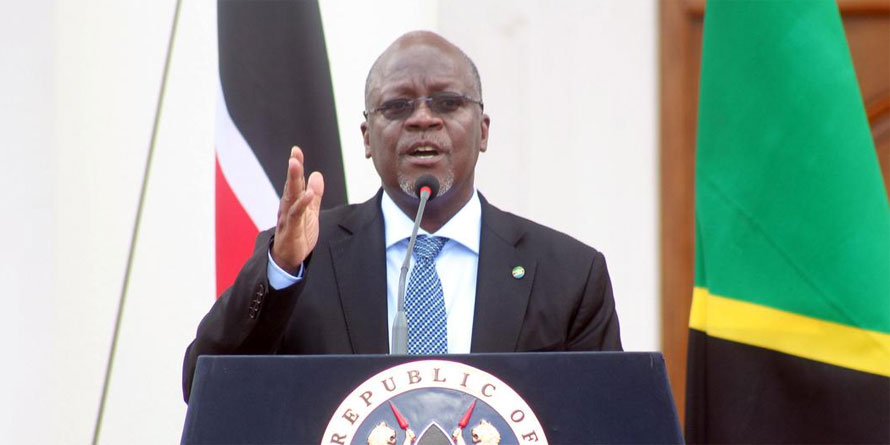
By: Jean-Claude Bastos de Morais,
Founder and CEO, Quantum Global Group
As Africa, and Angola, in particular, continues to liberalize its economy there is a significant opportunity for businesses to benefit from the first-mover advantage that exists in these frontier markets. We are already witnessing many foreign investors turning their eyes to sub-Saharan Africa as the next frontier for growth. The rewards of getting it right can be huge – but the risks are equally great. This is where the first-mover advantage comes in.
Real fears – and incredible opportunities. To understand the risk profile of investing in the world’s major growth markets in sub-Saharan Africa, investors must observe the minutia of how individual nations operated during the good times and (perhaps more tellingly) how they have responded to the global oil crash. We need to appreciate the intentions and fiscal strategies of some of Africa’s most opportunity-rich nations.
So, what we can see in the emerging markets, including in parts of Africa, is a maturing of institutions and the establishment of regulatory frameworks that have begun to filter down to the ‘firm-level’. In Africa’s case, the stability outlook is good because unlike the developed markets, it is a region that offers enormous opportunities to global private investors, many of which are low-risk and in high-growth industry sectors
Africa’s third largest economy, Angola, is one of the region’s most fascinating markets. Its context is unique. It has engaged in an unparalleled level of investment and structural reform since peacetime in 2002. In the past 15 years’, the Government of Angola has pushed ahead with major reforms building roads, schools and major public infrastructure. It has opened its doors to co-investment opportunities with multinationals, enabling it to push ahead with business-critical infrastructure. Major infrastructure projects, particularly in transport and logistics are a welcome sign of the government’s commitment to long-term investment in non-oil sectors and the Angolan government is also now embarking on large-scale public-private-partnerships (PPP’s).
Liberalization
One of the important areas for reform in Angola since 2002 has been its financial sector. This includes the widespread privatization and liberalization of some of the nation’s largest banks. That work began very early on after peacetime and has continued unabated by the global economic turmoil that has battered its economy. Recently, the country was removed from the Financial Action Task Force’s (FATF) monitoring process under its on-going global anti-money laundering and terrorist financing (AML/CFT) compliance process. In these crucial areas, it is as much about being seen to be doing the right thing as much as doing it. Continued growth rests on that confidence.
Until 2013, Angola’s GDP experienced an average growth rate of 10.7% (2007 to 2010) and 8.4% (2007 to 2013), has adjusted reaching an all-time high of 22.5% in 2007.It has maintained stable macroeconomic indicators throughout and after the economic crisis of 2008. The consumer price index shows that the country’s annual inflation fell from 13.5% in 2011 and has remained relatively stable since then up until 2016 where it peaked at 32.4%. Likewise, the country’s base interest rate fell steadily from 30% in 2010 to somewhere around 9% in2012 and today is up at 16% per year. These achievements could have faltered when international banks withdrew their supply of US Dollars towards the end of 2015, piling pressure on the Kwanza. The Central Bank acted swiftly, going some way to assuaging concerns.
The challenge now is to knuckle down and focus on key initiatives during the coming years of global uncertainty. With the markets, having moved from a sellers’ to a buyers’ market earlier this year, we see momentum for attracting investments that will further contribute to the country’s development and economic reform. The challenge will be to counter the shock waves from the lower oil prices and impact on the economy. The strategy to mitigate this crisis, which the government has already embarked upon, would be to diversify the economy beyond hydrocarbons and focus on other high growth sectors such as agriculture, healthcare, forestry, innovation amongst others. Equally important is to widen financial sector reforms, developing professional skills and improving the overall business environment.
The opportunities
Angola’s strategy of prioritising high-growth industries enables it to attract foreign investors to help support the pace of development. These large-scale projects are a critical component in the nation’s drive towards economic diversification. The has adjusted the minimum capital requirements for FDI and commenced its first private-public partnership, allowing the country to push ahead with major public infrastructure projects.
Investment firms such as Quantum Global are favourably looking at high-growth industries in Angola. Hospitality is one of those sectors, by necessity, because the country has experienced significant GDP growth and a high level of FDI. Businesses need world-class hospitality facilities.Angola’s government also recognizes the importance of a developed timber sector.
In 2016, the government granted a concession of over 80,000 hectares of plantations and additional land bank area to a private equity fund managed by Quantum Global to develop large-scale wood fibre plantations in the Planalto region of Angola. This is an opportunity for investors to take advantage – Quantum Global is to invest approximately $50 million of unleveraged equity, representing up to $200m when fully leveraged, to establish a new plantation. These private equity investments are a strong signal of confidence from the investment community – and part of that confidence stems from the reforms that have been made in Angola’s financial sector.
There are now a wide variety of opportunities for investors looking for a balanced risk-profile in projects that are designed to offer a long-term return on investment. They exist in mining, healthcare, agriculture, mezzanine financing and infrastructure. In mining, Angola has one of the richest subsoils in the Sub-Saharan region with 35 of the 45 most traded minerals to be found in the country, mostly still unexplored.
The role of private investment towards improving healthcare delivery in Angola and across Sub-Saharan Africa will certainly become increasingly important over the long-term. A combination of economic growth, a growing urban middle class and an under-developed healthcare sector will boost the demand for healthcare services, creating revenue earning opportunities for companies that provide primary and secondary care healthcare services. For investors looking at Angola, it is good news that these opportunities have come to the fore during a time of continued financial sector reform such as the introduction of Angola’s new law for foreign investment that ensures that the local business environment is more transparent for external investors.
Financial sector reform
As is the case in most sub-Saharan countries, the process of reform is ongoing. Angola needs to implement new reforms in order to strengthen the country’s capital markets and build greater trust from the international community. The National Bank of Angola’s (BNA)is highly focused on AML FATF initiatives and there are several reforms that have already been rolled out in 2016.
Angola understands that capital markets are a vital part of the financial sector. In October 2015, we saw Angola launch $1.5bn worth of sovereign debt bonds in a bid to broaden the range of external finance. The launch of the bond comes as part of the government’s wider efforts to establish relationships with international investors, access capital markets around the world and increase its international reserves through an influx of foreign capital.
From a regulatory perspective, the government is looking to adopt stronger governance and compliance requirements designed to meet global standards. With this overarching objective in mind, the country’s central bank recently issued new and detailed guidelines, referrals and manuals to reflect prevailing international best practices and align them with the objective of being fully compliant with international financial monitoring standards. Measures such as these will foster the integrity of Angola’s financial system and will ultimately deliver trust and transparency – but it should be noted that the market is still very young in Angolaand many local business will take time to adapt to the new realities
Angola will continue to be a major focus for investment firms such as Quantum Global over the coming years because there is clear momentum and potential in the market and in important areas of public investment. It is undeniable that Angola has made great improvements in almost every aspect of socio-economic development and given this progress, investors should be confident that Angola is still one of Africa’s most promising markets.


